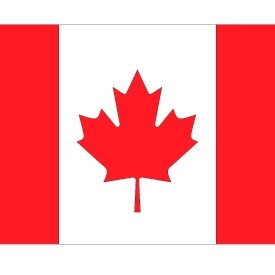Canadian Regulation Changes May Affect U.S. Manufacturers

Amendments have been proposed concerning the Canadian government’s regulations on formaldehyde emissions from composite wood products.
The regulations, which were originally published in the Canada Gazette, Part II, on July 7, 2021, came into force on Jan. 7, 2023. Since composite wood products are often used in the manufacturing of RVs, the RV industry should be aware of these amendments. RV Industry Association members who ship products into Canada should view the proposed regulations, which align Canadian formaldehyde regulations with the U.S. Toxic Substances Control Act of 1976’s Title VI as much as possible.
According to Health Canada, these regulations aim to reduce potential health risks from indoor formaldehyde exposure – which can irritate the eyes, nose and throat and worsen asthma symptoms – by establishing limits on allowable formaldehyde emissions from composite wood products. This facilitates regulatory harmonization with the U.S. Environmental Protection Agency.
In addition, the regulations prohibit the import, sale or offer for sale of composite wood products that emit formaldehyde above established limits.
However, according to the Regulatory Impact Analysis Statement in the Canada Gazette, Part I, Volume 157, Number 24 (“Regulatory Impact Analysis Statement”), a drafting oversight in the regulations implies that panel manufacturers must use an accredited laboratory to comply with quality control testing requirements, which was not the intention. Furthermore, requiring downstream-regulated parties to collect declarations of certification for all composite wood panels that may have been incorporated into the finished goods they import, distribute or sell, could impose a burden that was also not intended.
The proposed amendments would clarify the quality control testing and record-keeping requirements. Without the proposed amendments, regulated parties would incur unanticipated costs to comply with the regulations. As stated in the Regulatory Impact Analysis Statement, the amendments aim to address the following issues:
Address a drafting oversight by removing the accreditation requirement for laboratories conducting routine quality control formaldehyde emissions testing, to provide clarification for regulated parties and reduce the risk of misinterpretation of the regulations;
Clarify record-keeping requirements for finished goods along the composite wood products supply chain;
Maintain the regulations’ close alignment with the Toxic Substances Control Act’s Title VI in order to minimize international trade barriers; and
Make minor amendments to provide clarification on issues brought forward by stakeholders.
The RVIA will continue to monitor this situation.



